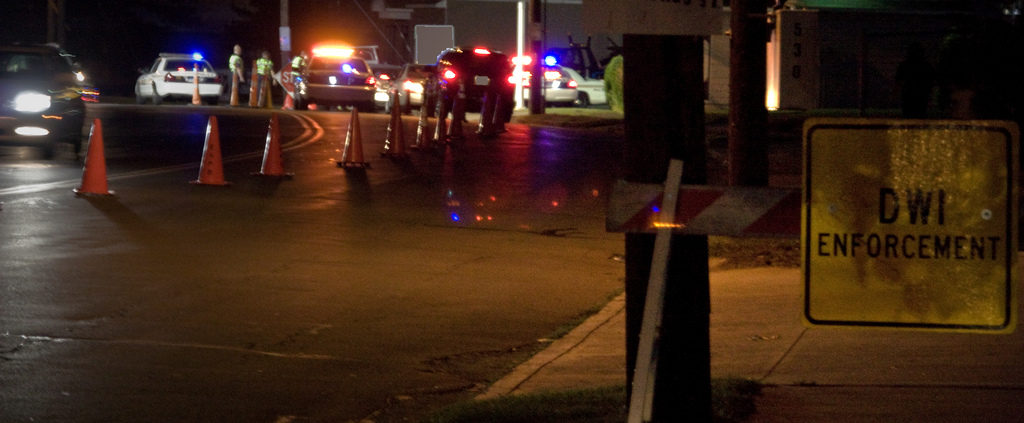
Kansas conducts dozens of DUI checkpoints throughout the year, and Johnson County sets up many checkpoints during spring and summer months. Also called saturation or sobriety checkpoints, the main goal according to the Kansas DOT is to “make sure the drinking driver believes the chances of apprehension are greatly increased.”
The working logic here is that by creating a fear of getting caught, people will think twice before drinking and driving. Police and law enforcement officials also agree with this logic in their efforts to justify utilizing DUI checkpoints. Their thinking is simple: fear is a deterrent.
The problem is that sobriety checkpoints rarely catch drunk or impaired drivers. Another problem is that DUI checkpoints greatly conflict with one of the most logical documents known to mankind. The authors of the U.S. Constitution had government intrusions in mind when they wrote the 4th Amendment stating individuals have the right to be free from unreasonable searches and seizures by government agents.
Because sobriety checkpoints clearly clash with the 4th Amendment, people often want to know what their rights are during a Kansas DUI checkpoint. In Kansas, DUI Checkpoints operate under very specific rules and regulations. If these regulations are not followed properly, then the stops are illegal and can be argued as such by a DUI defense attorney after an arrest.
Here are a few things to keep in mind during a DUI Checkpoint Stop:
- You have the right not to answer any questions that may incriminate you.
- Further, officers can only ask you for your Driver’s License and proof of insurance. You must produce these. However, you can politely say you do not want to answer any other questions without first speaking to a lawyer.
- You have the right to say that you do not consent to any searches. The officer is well-trained in finding probable cause for a body or vehicle search, but if you verbally said you do not consent, then your defense attorney can later argue that the search was unlawful, which may be vital in your case.
- You have the right to refuse any sobriety field tests. Field tests are where the officer asks you to get out of your car and perform a variety of motor skills and coordination tests. Officers are well-trained in intimidation tactics that make you feel as though you must comply with everything asked of you. It takes courage to say “no” to an officer who commands you to get out of your car. But, you have the right to ask “why” or “for what purpose?” If the officer’s answer indicates field testing, then you can again politely refuse.
Many drivers around the country are beginning to mount peaceful resistance campaigns in protest to their state’s DUI checkpoint programs.
You may have also been inspired by the DUI checkpoint YouTube videos created by the Fair DUI Flyer attorney featuring the ziplock bag method. But Kansans should understand that while the High Court has ultimately left the legality of DUI checkpoints up to each state, in the name of “public safety,” Kansas courts have consistently upheld the legal use of checkpoints.
There are many arguments that can be successfully made after a DUI checkpoint arrest. Some arguments in these cases are grounded upon Constitutional principles. However, many successful defenses are based on sound logic. For instance, your DUI defense attorney can argue that your motor skills had to be intact in order for you to successfully drive through the DUI checkpoint lane.
